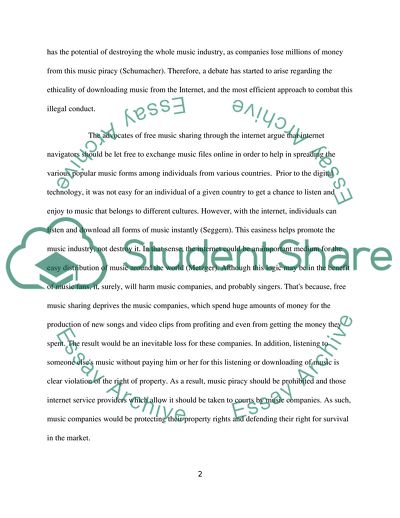Cite this document
(Illegal Exchange of Music Files Over the Internet Essay Example | Topics and Well Written Essays - 1750 words, n.d.)
Illegal Exchange of Music Files Over the Internet Essay Example | Topics and Well Written Essays - 1750 words. https://studentshare.org/law/1762792-critical-essay-for-philosophy-class
Illegal Exchange of Music Files Over the Internet Essay Example | Topics and Well Written Essays - 1750 words. https://studentshare.org/law/1762792-critical-essay-for-philosophy-class
(Illegal Exchange of Music Files Over the Internet Essay Example | Topics and Well Written Essays - 1750 Words)
Illegal Exchange of Music Files Over the Internet Essay Example | Topics and Well Written Essays - 1750 Words. https://studentshare.org/law/1762792-critical-essay-for-philosophy-class.
Illegal Exchange of Music Files Over the Internet Essay Example | Topics and Well Written Essays - 1750 Words. https://studentshare.org/law/1762792-critical-essay-for-philosophy-class.
“Illegal Exchange of Music Files Over the Internet Essay Example | Topics and Well Written Essays - 1750 Words”. https://studentshare.org/law/1762792-critical-essay-for-philosophy-class.


